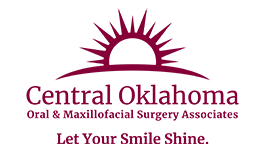Oral Surgery Post-Surgical Care
POST-OPERATIVE CARE AFTER SURGERY
You have had a surgical operation and a certain amount of pain, swelling and bleeding is to be expected. Everyone in this office is interested in your comfort and speedy recovery. Please cooperate with us by following these instructions.
BLEEDING
A certain amount of bleeding is to be expected following the removal of teeth and it may continue for several hours. You should place a moistened gauze roll directly on the bleeding site and apply pressure for 30 minutes. Repeat as often as necessary every 30 minutes until bleeding subsides. Slight oozing the first 24 hours is acceptable. To help control bleeding, DO NOT rinse your mouth the first day. A small, dry tea bag may be alternated with the gauze for extra clotting effect. In case of severe or heavy bleeding, please contact us.
SWELLING
Swelling usually occurs following surgery. An ice bag applied alternately to the right and left side, for 20 minutes on each side for the first 6 – 9 hours after surgery will help, but will not eliminate swelling. Peak swelling will occur 48-72 hours following the procedure.
ORAL HYGIENE
After the first 24 hours, you may gently rinse your mouth 2 – 3 times each day with a solution of ½ teaspoon of salt in a glass of warm water. It is very important to resume gentle tooth brushing on the day after your surgery. There will be a hole in your mouth where the tooth or teeth were removed that will slowly fill in over a six to eight week period. This is normal and no cause for alarm.
PAIN
Unfortunately, pain pills only help control pain and do not entirely eliminate it. It takes a pain pill 30 – 60 minutes to work; therefore, take your pain medication before the local anesthesia wears off completely. While you are taking your prescription pain medication, DO NOT drive or operate any type of heavy machinery. Also, you will have less discomfort if you rest with your head elevated or remain in a semi-reclining position.
NAUSEA
Post-operative nausea is usually caused by taking medication on an empty stomach. Occasionally people experience nausea from different pain medications. If nausea occurs, discontinue the pain pills. Tylenol or Ibuprofen (Advil, etc.) can be used until your prescription can be changed. Avoid milk products until the nausea subsides.
DIET
Begin with clear liquids such as Sprite or 7-Up and then advance to soft foods: soup, pudding, gelatin, oatmeal, applesauce, baked potatoes, pasta, etc. It is very important that you drink plenty of fluids. DO NOT use a straw to drink. Also, avoid tobacco products and alcoholic beverages for 5 – 7 days.
ACTIVITY
There are no set of rules because people recover at different rates. Take it easy for the first few days, then be reasonable; don’t push yourself. Remember, while you are taking your prescription pain medication, DO NOT drive or operate any heavy machinery and avoid any other activities in which you may injure yourself.
